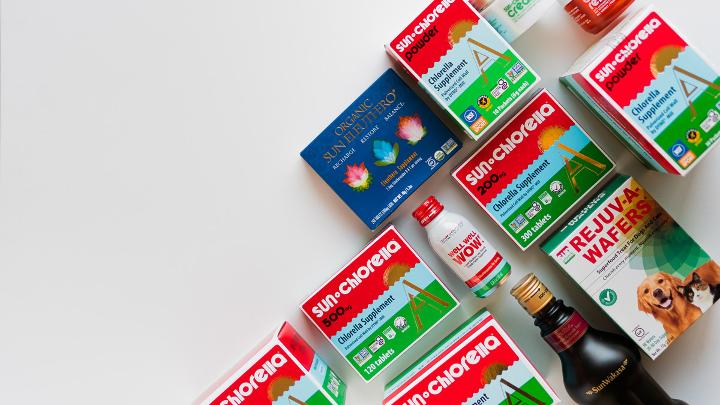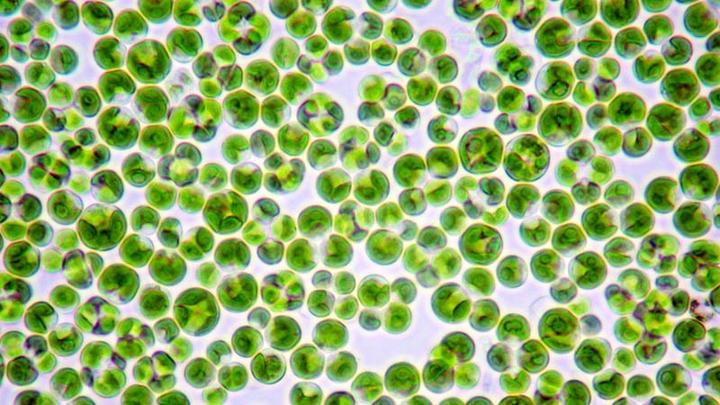No matter how healthy you eat, how much sleep you get, or how often you exercise, if your body is under stress and your stress levels are not well managed, it's impossible to be completely healthy. When stress goes unmanaged, it creates the perfect environment in the body to welcome the onset of disease and diminishes your health and wellness.
To understand how to handle stress, you first need to understand what stress is. Stress is defined as your body's response to good or bad demands. Stress can be emotional, mental, physical, or nutritional. It can also be present without your
Understanding How Your Body Responds To Stress
When you're experiencing stress (i.e., from your angry boss, a traffic jam, running late for an appointment, or a fight with your significant other), "warning bells” go off in your body and signal to your adrenal glands that you're dealing with a stressful situation. Your adrenal glands then elicit a stress response—better known as fight or flight—to help you cope with the stressful situation.
Fight or flight is a survival mechanism. It was intended to help humans survive being chased by wild animals in the caveman days. When we enter survival mode, our pupils dilate, blood sugar levels rise, adrenaline releases and our hearts beat faster. We become fully equipped with all the necessary tools to run from a hungry tiger and save our lives!
Today, the hungry tiger is no longer. Instead, he's been replaced by stressful jobs, financial stressors,
The Dangers of Suppressed Stress
First, it should be noted that not all stress is bad. Stress can be helpful in certain situations. Consider running from the angry tiger and saving your life (as illustrated in the last paragraph) or improving mental clarity and focus in the gym to push beyond current limits.

Stress only becomes a problem when knowing how to handle stress escapes you. Suppressed stress impacts all systems in the body and will manifest as different symptoms in each person. This is why some people may experience digestive complaints during periods of stress while others experience acne breakouts or anxiety attacks. Eventually, these "beginning” stress symptoms can lead to more serious conditions such as adrenal fatigue, chronic digestive issues, a decline in cardiovascular health, and complete burnout.
Stress Coping Mechanisms
Efficient stress coping mechanisms will look different for each person. A few excellent suggestions are getting outdoors (even just for a twenty-minute walk after dinner), exercising to release endorphins, going to a yoga class, being in the company of good friends, speaking with a therapist you connect with, writing, meditating, and deep breathing. Walking barefoot outdoors (called "earthing”) can also help you feel grounded when things feel too chaotic. These are all good ways to release the energy of negative stress.
To prevent nutritional stress and help your body become better equipped to deal with stressful situations, it's important to eat real food jam-packed with nutrients.

Foods high in refined sugar only worsen the body's internal condition by stripping stress-supportive nutrients from the body (such as B vitamins) to be metabolized. Refined sugar also negatively affects the balance of blood sugar levels, promoting anxiety attacks and mood swings. These foods also promote cravings for more sugar, entering you into a vicious cycle of empty nutrients and even more stress. Caffeine should be avoided whenever possible as it has a similar impact.
The last thing your body needs is more stress! Eliminating processed foods, alcohol, and caffeine wherever possible will do your body good, and you may notice a greater ability to handle stressful situations with ease as they come into your life.
We all experience it, so why learn how to handle stress?
Important Nutrients To Help Handle Stress
B Vitamins
All B vitamins help support the nervous system, especially B12. It's suggested that B12 may help reduce depression by helping the brain produce serotonin, the feel-good neurotransmitter. Low levels of B12 have been linked to depression.

B12 also works with SAM-e, a compound in the body that plays a role in serotonin and dopamine function [1]. B vitamins are also essential to provide nourishment to the adrenal glands. B vitamins can be found in foods such as beef liver, brown rice, algae, buckwheat, spelled, nutritional yeast, wild fish, organic eggs, sprouted grain bread, and other unprocessed whole grains.
Magnesium
Magnesium is the ultimate mineral for helping you handle stress. It nourishes your adrenal glands, relaxes tension, and soothes the nervous system.
The relationship between magnesium and stress is not a healthy one. Low magnesium levels can cause stress and anxiety, while stress depletes magnesium levels in the body. Excess caffeine, table salt, sugar, alcohol, and antibiotic use deplete magnesium stores.
By including extra magnesium in your diet, you can help increase your body's defense mechanisms against stress and promote feelings of relaxation. The best food sources of magnesium are dark leafy greens, brown rice, cashews, almonds, quinoa, oats, barley, and buckwheat. Epsom salt baths are also effective (and pleasantly relaxing) for instant magnesium absorption. Add in some lavender essential oil for extra calm. Magnesium also helps the body properly utilize calcium, which promotes calm and relaxation.
Calcium
Calcium is also depleted by stress. Calcium is best known for healthy bones and teeth. Calcium supports the nervous system by promoting restful sleep and regulates blood pressure and nerve impulses. Since calcium and magnesium work so closely together, it's important to ensure you eat both calcium and magnesium-rich foods to protect against stress.

Calcium can be found in sesame seeds, hemp seeds, yogurt, leafy greens, almonds, other nuts, and seafood.
Vitamin D
Ahh, Vitamin D–the sunshine vitamin! Vitamin D is called the sunshine vitamin because your body synthesizes vitamin D from cholesterol and UV rays from the sun. It also helps regulate your mood and the function of your nervous system [2].
Low vitamin D levels have been linked to depression and may play a key role in seasonal affective disorder (SAD). The best way to get vitamin D is by spending time outdoors. You can also get vitamin D from food sources such as egg yolks, cod liver oil, sardines, fortified orange juice, and good-quality cheese. Low vitamin D levels have been linked to depression and may play a key role in seasonal affective disorder (SAD). The best way to get vitamin D is by spending time outdoors. You can also get vitamin D from food sources such as egg yolks, cod liver oil, sardines, fortified orange juice, and good-quality cheese.
Essential Fatty Acids
Essential Fatty Acids are known as EFA's and include omega-3 and omega-6 fatty acids. They are essential because our bodies cannot produce them independently, so we must obtain them from our diets.
Essential fatty acids are key in supporting the body's stress levels. They act as natural anti-inflammatories (stress creates inflammation in the body) and a preventative measure against stress and may regulate mood. A deficiency in essential fatty acids, particularly omega-3s, has been linked to depression [3]. You can get omega-3 essential fatty acids from several plant-based sources such as hemp hearts, flaxseed, pumpkin seeds, sunflower seeds, nuts, and fish such as salmon, tuna, cod, halibut, and natural nutritional supplements containing algae.
Chlorella Growth Factor (CGF)
Chlorella provides a unique health benefit called Chlorella Growth Factor (CGF). CGF allows chlorella to multiply by four every 20 hours through photosynthesis.
Adaptogens
An adaptogen is a specific herb that helps the body cope or adapt to stressful situations. They support the adrenal glands and help reduce the fight or flight response's negative impact by regulating the release of stress hormones.
Organic Sun Eleuthero is one of the most powerful adaptogens and natural energy-boosting supplements to help fight against stress and support a healthy immune system. Schizandra and Rhodiola are also adaptogens proven effective as stress-coping herbs.
Important Nutrients To Help Handle Stress
Chlorella and Stress
CGF is one of the key benefits of stress that chlorella provides. But how else does chlorella measure up as a stress-supportive nutritional supplement?
As it turns out, chlorella is one of the most complete and nutritionally supportive foods regarding stress and overall health and wellness.

With double the amount of vitamin B12 than beef liver, chlorella provides the nervous system with this essential vitamin for serotonin production. Nervous system nourishment is also provided by the essential fatty acids (with particularly high levels of omega-6) found in chlorella tablets and chlorella powder.
Chlorella also neutralizes acidity in the body and restores a negative pH caused by stress and other negatively contributing environmental, physical, and nutritional factors.
Lastly, this amazing green superfood contains twice the amount of protein per gram than a steak, which helps stabilize blood sugar levels to help prevent anxiety attacks and mood swings.
Suffice it to say; chlorella offers several benefits to prevent and fight against ongoing stress while increasing your natural wellness.
Ready to Find Your Chlorella?
Find your best chlorella that fits your lifestyle. Sun Chlorella offers easy-to-take small tablets, larger tablets, and powder form.
Sources:
[1] http://umm.edu/health/medical/altmed/supplement/sadenosylmethionine
[2] http://www.ncbi.nlm.nih.gov/pubmed/23744412
[3] http://www.ncbi.nlm.nih.gov/pubmed/15750663


How To Handle Stress